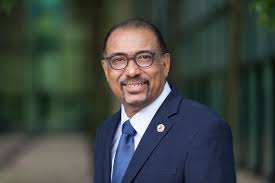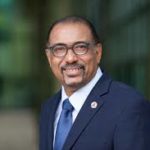Three United Nations agencies, UNAIDS, United Nations Children’s Fund (UNICEF) and the World Health Organization (WHO) have urged countries
in western and central Africa to do more to stop new HIV infections among children and adolescents and increase HIV testing and treatment coverage.
Health Reporters gathered that the resolution was made at a high-level meeting in Dakar, Senegal on Wednesday by the UN agencies.
In 2017, around 67 000 children, aged 0–9 years and 69 000 adolescents, aged 10–19 years became newly infected with HIV, with the two thirds, 46 000 of adolescents newly infected with the virus were girls.
While progress has been seen in stopping new HIV infections among children in some countries, eleven countries registered a reduction of
more than 35 per cent between 2010 and 2017.
Others, including Nigeria, which has the largest epidemic in the region, experienced no declines at all.
The Executive Director of UNAIDS, Michel Sidibé said countries in western and central Africa have a real opportunity to create a positive change for children and young people.
“Underlying issues including a lack of domestic investment, fragile health systems, user fees, gender inequality and widespread stigma and
discrimination must urgently be addressed to remove barriers and save lives,” he said.
In western and central Africa, close to 800 000 children and adolescents aged between 0 and 19 years were living with HIV in 2017, the second highest number in the world after eastern and southern Africa.
UNICEF Regional Director for West and Central Africa, Marie-Pierre Poirier said the majority of children living with HIV in the regions are not receiving care and treatment, “because they do not know they have HIV as they have not been tested.”
“We can reverse that trend by focusing on a family-centered approach to HIV testing and treatment and by rolling out innovative
point-of-care technologies that bring testing closer to the primary health facilities and the communities where children live.”
WHO Regional Director for Africa, Matshidiso Moeti said they are making effort not lose anymore of Africa’s future to AIDS.
He said: “Effectively tackling HIV in children and adolescents needs strong and quality health services. By committing to universal health
coverage, countries can fast-track progress towards an AIDS-free generation in western and central Africa.”
As part of concerted efforts to step up progress in the region, UNAIDS, UNICEF and WHO called a High-Level Meeting on the Elimination of Mother-to-Child Transmission of HIV and Universal Health Coverage of Paediatric HIV Testing and Treatment in West and Central Africa to
unpack the challenges, share best practices and innovative approaches to address the persisting bottlenecks.
They meeting would also agree on corrective actions and ensure commitment to action from countries and partners.
Hosted by the Government of Senegal, the meeting is being held in Dakar from 16 to 18 January 2019, bringing together ministers of
health, experts, representatives of civil society and partners from across the region as well as high-level representatives of United Nations organizations, the African Union, the Economic Community of West African States and the Economic Community of Central African States.
During the meeting, an important funding announcement to UNAIDS was made by Australia, which confirmed it was pledging nearly $1 million
in additional funds for HIV prevention in the Asia–Pacific region.





